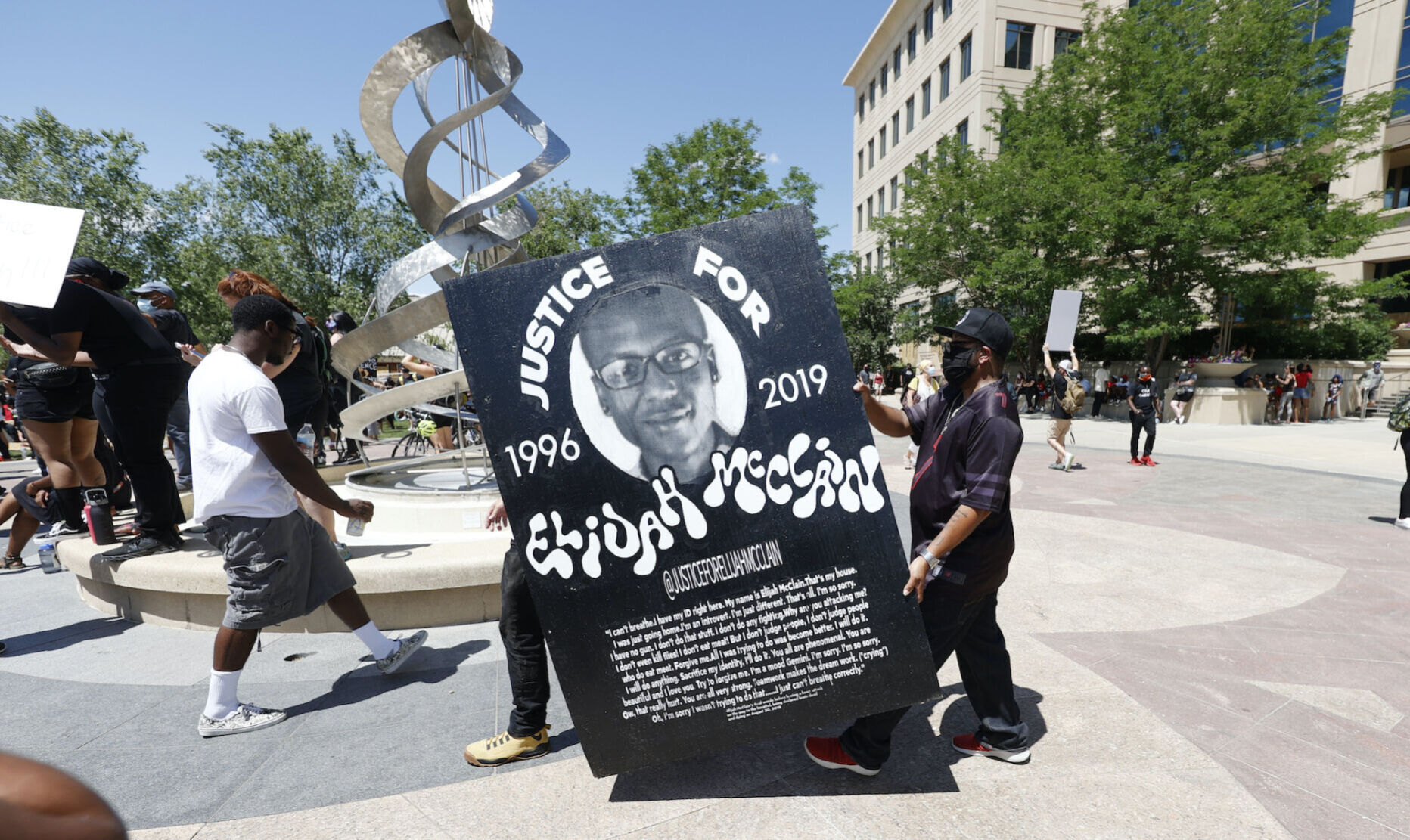Police officers and paramedics charged for Elijah McClain’s death make first court appearance Monday

Three Aurora police officers and two paramedics indicted in connection with the 2019 death of Elijah McClain made their first court appearance Monday morning in Adams County.
Attorney General Phil Weiser announced indictments Sept. 1 against officers Randy Roedema, Jason Rosenblatt and Nathan Woodyard and paramedics Peter Cichuniec and Jeremy Cooper. They each face a count of criminally negligent homicide and manslaughter, both felonies, and assault charges are also among the counts.
Grand jury returns 32-count indictment in Elijah McClain’s death
McClain, a Black man, encountered the officers as he walked home from a convenience store on Aug. 24, 2019. They had responded to a report of a person acting suspiciously. McClain wore a mask to keep warm because of anemia and was reportedly waving his arms, but he was not suspected of any crime.
The officers forcefully subdued McClain, putting him in a type of neck hold intended to cause temporary unconsciousness to gain control over a person.
The paramedics called to the scene injected McClain with 500 milligrams of ketamine, which according to the indictment would have been the dose estimate for someone weighing more than 200 pounds. McClain weighed 143 pounds.
McClain went into cardiac arrest and died a few days later in the hospital, having never regained consciousness.
The Aurora Police Department no longer trains or authorizes any kind of chokehold. Last year, Wilson fired two officers who took a photo mocking McClain’s death and sent it to Rosenblatt, one of the officers who stopped McClain. Rosenblatt was also fired for responding, “Ha ha.”
Sheneen McClain, Elijah’s mother, said Monday’s court appearance was the first time she had seen the officers and paramedics in person. She said she wanted to stand up with her fists in the air and say her son’s name, but knew she needed to respect the judge and the proceedings.
“Underneath my mask, I wanted to say so many things; cuss them out, ask them why,” she said. “They kept their eyes down on the ground. They were numb, so to say.”
17th Judicial District Court Judge Priscilla Loew temporarily suppressed the records in the cases against Cooper and Cichuniec at the request of their attorneys, who cited safety concerns for their clients because of personal identifying information in the court filings.
Going forward, new filings containing Cooper and Cichuniec’s personal information such as home addresses can be redacted in a public version of the documents, Loew said, and unredacted copies must also be filed under suppression. But the the substance of the filings must remain public, she said.
The attorneys have to file a motion if they wish to suppress future filings from public access, Loew ordered. She has allowed the parties 10 days to redact documents already filed in Cooper and Cichuniec’s cases and will then make them public.
A state Supreme Court rule that went into effect in May requires judges to explain their reasoning in writing when suppressing criminal court records. The Reporters Committee for Freedom of the Press filed a motion to object to the sealing on behalf of a coalition of news outlets, including The Denver Gazette and The Gazette.
The defendants have their next court date scheduled for Jan. 7.














